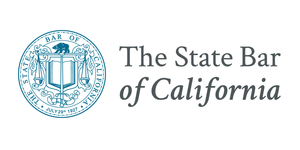
The State Bar of California Standing Committee on Professional Responsibility and Conduct issued an advisory opinion addressing a lawyer’s ethical obligations when a lawyer or a lawyer in the law firm has violated, or will violate, the Rules of Professional Conduct during the representation of a client as a result of the lawyer’s possible mental impairment See Cal. State Bar Formal Opn. No. 2021-206 (2021). Here are the important takeaways from this opinion:
- A lawyer’s mental impairment does not lessen a lawyer’s obligation to provide competent and ethical representation. However, a lawyer’s mental impairment may interfere with a lawyer recognizing his own limitations or its impact on the lawyer’s performance of legal services.
- The Rules of Professional Conduct provide that the impaired lawyer may need to terminate the representation depending on the severity of the mental impairment. Louisiana Rule of Professional Conduct rule 1.16(a)(1) states that a lawyer shall withdraw from the representation of a client if “the representation will result in violation of the rules of professional conduct or other law.” Similarly, rule 1.16(a)(2) provides that a lawyer shall withdraw from the representation if “the lawyer’s physical or mental condition materially impairs the lawyer’s ability to represent the client.” A lawyer may, but is not required, to withdraw when the lawyer believes the continued representation is simply likely to result in a violation of the Rules of Professional Conduct or the lawyer’s mental condition makes it difficult for the lawyer to carry out the representation effectively.
- Subordinate and managerial lawyers with knowledge of an impaired lawyer’s conduct owe responsibilities to the affected client, the impaired lawyer, and the firm when an impaired lawyer is unable or unwilling to address the consequences of his impairment. These responsibilities may include taking remedial measures to ensure that the client’s rights are protected.
- Remedial actions could include notifying a supervisory lawyer in the firm, confronting the impaired lawyer, communicating with, and notifying the client, modifying the impaired lawyer’s responsibilities as appropriate based on the lawyer’s mental impairment, terminating the impaired lawyer’s representation of the client, and/or referring the client to new counsel to handle the matter.
- The law firm should consider implementing reasonable accommodations for the lawyer when the impairment does not materially affect the lawyer’s work.
- If the subordinate lawyer reasonably believes that notifying other lawyers within the firm would be an insufficient remedial measure, a subordinate lawyer should take actions as may be required to preserve the client’s rights. This usually will involve communicating to the client any important information about the lawyer’s conduct which impacts the client’s interests.
- As to lawyers with managerial authority, such lawyers must make reasonable efforts to ensure that the law firm’s lawyers comply with the rules of professional conduct. Firms should consider enacting policies and procedures to encourage the lawyers to report to the appropriate personnel any concerns about a lawyer’s impairment.
When a lawyer is unable to represent clients due to a physical or mental disability, the Supreme Court may place the lawyer on disability inactive status. Louisiana Supreme Court Rule XIX, Section 22 provides the procedures for a lawyer to be transferred to disability inactive status when a lawyer is declared incompetent or alleged to be incapacitated. A transfer to disability inactive status may be appropriate when a lawyer’s physical or mental condition adversely affects the lawyer’s ability to practice law. A lawyer on disability inactive status is not eligible to practice law in Louisiana.
